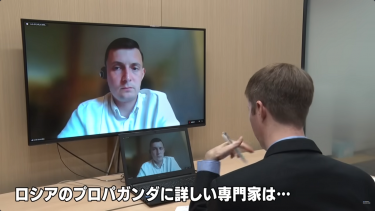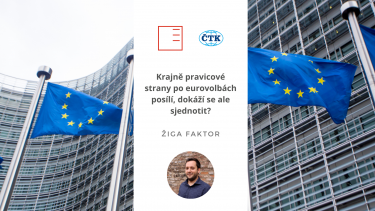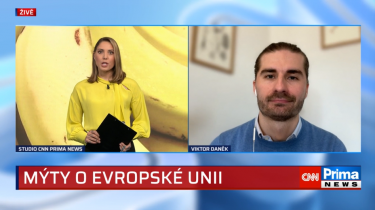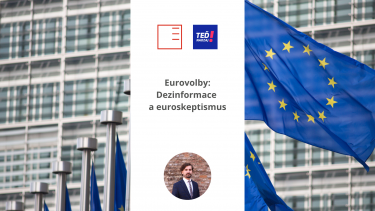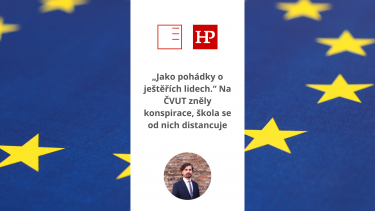TBS NEWS | Behind the Rise of the Far Right: The Shadow of China and Russia?
The rise of far-right parties in the European Parliament elections has caused concern across the continent. Analysts point to external influences, particularly from China and Russia, as possible causes. Both countries are alleged to have tried to influence the elections through disinformation campaigns. While Europe is facing a rise in populism, possible foreign interference casts a shadow over the ongoing political debate. Jonáš Syrovátka, an analyst at EUROPEUM Institute, comments for the Japanese TV channel TBS NEWS.
Show more
ČTK | Far-right parties will get stronger after the European elections, but can they unite?
Could the far-right parties in the European Parliament win more votes than the traditionally largest EPP faction, as some polls suggest? And what would this mean for Ursula von der Leyen's chances of being re-elected as head of the European Commission? Žiga Faktor, deputy director of EUROPEUM Institute and head of its Brussels office, commented for ČTK.
Show more
CNN Prima News | Myths about the European Union: How disinformation threatens our values and how to counter it?
Many myths, hoaxes, and lies circulate about the European Union. Despite the spread of this information, decisions in Brussels are not made "about us without us," and the European Union does not plan to ban curved cucumbers and bananas. Why, then, do these disinformations spread? And how can we prevent them? Viktor Daněk, Deputy Director of EUROPEUM Institute for European Policy, comments for CNN Prima News.
Show moreTeď naozaj! | EU elections: Disinformation a euroscepticism
What are the trends in the campaigns for the European elections? What disinformation is circulating in the public space about the European Union? What are the reasons for the strong euroscepticism in the Czech Republic? Viktor Daněk, Deputy Director in the Institute EUROPEUM answered these and other questions in the Czech-Slovak podcast "Teď naozaj!".
Show moreNewsroom ČT24 | Myths about the EU: Crooked bananas and other bans
Myths and disinformation about allegedly bad European officials and their bans spread in the Czech Republic even before joining the EU and persist to this day. What is the origin of these disinformation, and what are the most common myths? Žiga Faktor, head of the Brussels office and deputy director of the EUROPEUM Institute, addressed these questions in a comment for Newsroom ČT24.
Show more
EU-Pacific Talks: The weaponisation of information: The future of risk in the digital era?
In the second debate of the third series of EU-Pacific Talks, organised by EUROPEUM Institute for European Policy, the guests focused on the digital future. The focus was on the experiences of several countries, which provided valuable insights into their proactive approach to countering disinformation and their focus on cyber security. Read about what our guests discussed in a report written by Petra Pospíšilová, Office and Project Coordinator.
Show moreHlídacíPes | "Like tales of lizard people." Conspiracies sounded at CTU, school disassociates itself
The European Union also appeared among the topics that economist Peter Staněk recently commented on at the CTU. However, his views are far from the truth. Our deputy director Viktor Daněk helped to set the matter straight.
Show moreDezinfo Czech
Even in the Czech Republic we can find a wide disinformation undergrowth that makes it difficult to know where the truth lies. What are the most common narratives around European issues in this country? What do we need to watch out for? At Europeum, we are launching a new project called DezInfoCzech aimed at uncovering the most common disinformation narratives around European topics.
Show more
Discussing Ukraine in V4 mainstream media: The future vis-à-vis European integration
The project assesses the production, distribution and consumption of news on Ukraine’s future vis-a-vis European integration by the V4 mainstream media. The aim is to designate both dominant and marginalized narratives, while also analyzing their impact via focus groups. The findings will be presented to stakeholders in order to improve reporting and increase the audiences’ access to information.
Show more PNG
ČT24: Disinformation about the ban on cars with internal combustion engines
Our project manager Tatiana Mindeková commented on the growing misinformation about combustion engines and the Green Deal in the CT24 Newsroom.
Show moreStaroměstské náměstí 4/1
Prague 1 - Staré Město
110 00
tel.: +420 212 246 552
email: europeum@europeum.org
https://www.europeum.org
